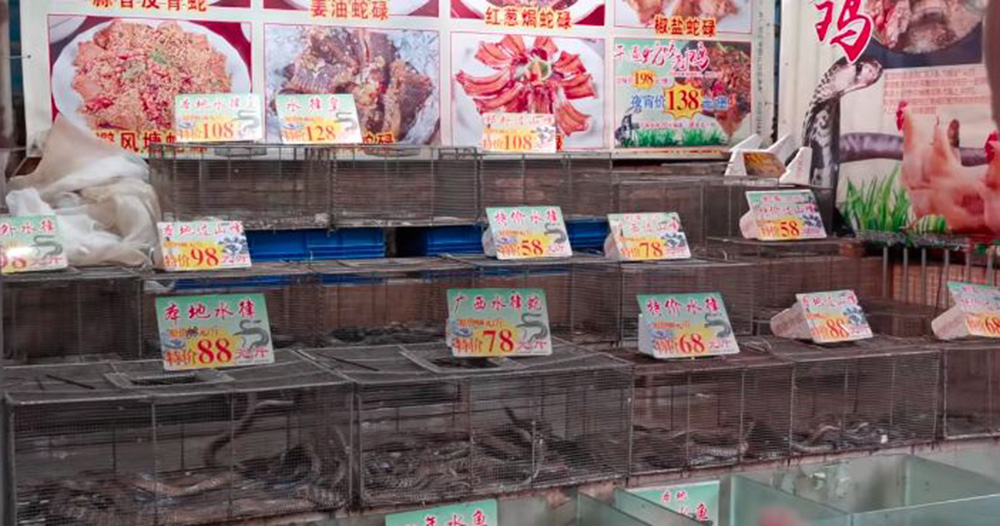China's wildlife meat traders have stated their intent to resume business once the ban on wildlife trade is lifted, Reuters reported.
On Jan. 26, the country implemented a nationwide ban on the wildlife trade in markets, supermarkets, restaurants and e-commerce platforms in a bid to contain the outbreak of the novel coronavirus (Covid-19).
Wildlife meat traders have frozen their meat
And it appears that wildlife traders have since taken to freezing their meat in order to wait out the ban.
Reuters quoted Gong Jian, the owner of a online wildlife store and shops in China's Inner Mongolia region, who said:
"I’d like to sell once the ban is lifted. People like buying wildlife. They buy for themselves to eat or give as presents because it is very presentable and gives you face."
He added that he while had frozen his stocks of crocodile and deer meat, he would have to kill the quails he had been breeding, as their eggs were no longer in demand by supermarket and their meat could not be frozen.
Meanwhile, Xiang Chengchuan, a wholesale wildlife store owner in Anhui province also said that he intended to sell his products once the ban was lifted, although he was unsure as to how long it would last.
He added that he had since frozen his stocks of deer antlers, dog, donkey and peacock meat, which is usually sold to customers such as wealthy bank clients.
Cultural demand means blanket ban won't work
Research journal Nature further stated that a complete ban in China carries a risk of resulting in an uncontrollable and lucrative illegal trade due to the demand for wildlife products being cultural.
Part of this is due to the consumption of game meat being considered as a symbol of both health and wealth.
What's more, such a trade will also be sustained by the income and social status of the country's growing middle class.
China's wildlife trade has been fuelled by the government's support
Japan Times further reported that the Chinese government's support for the traditional medicine industry has fuelled the wildlife trade, due to its use of both domesticated and wild animal products.
Valued at about US$60 billion (S$83.2 billion), the industry has seen examples such as Chinese pharmaceutical receiving permits for the scales of about 73,000 pangolins in 2016, for medicinal purposes.
Additionally, while demand for consumption of wildlife has fallen to a minority in the country, it still represents tens of millions of consumers of wildlife meat in the country.
National Geographic also highlighted that the Chinese government has approved the sale and breeding of 54 wild species on farms for consumption.
These species include minks, ostriches, hamsters, snapping turtles, and Siamese crocodiles.
Change is possible
However, the Japan Times stated that change is possible, and pointed to the country's successful reduction in the demand for shark's fin soup through a campaign led by celebrities.
The key lies in viewing the wildlife trade as both a public health and conservation threat.
Caroline Dingle, an evolutionary biologist in the conservation forensics lab at Hong Kong University, further echoed this view, stating as per National Geographic:
"For any ban to be effective, it will be important to get buy-in from citizens. People need to believe that consuming wild animals is bad for them personally for any ban to work long-term."
Related story
Top image screenshot from ToORiMa YouTube
If you like what you read, follow us on Facebook, Instagram, Twitter and Telegram to get the latest updates.
